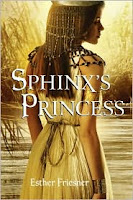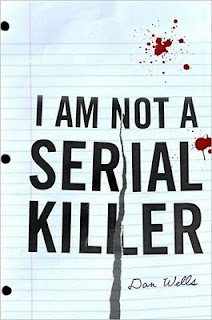Delsol, W. (2010).
Stork. Somerville, MA: Candlewick Press.
357 pages.
Appetizer: Sixteen-year-old Kat is still the new girl at Norse Falls High School in Minnesota. The fashion savvy girl moved there with her mom over the summer, after her mom's divorce and to help her grandfather with his store. Kat is still far from excited about her new town, especially after she had a drunken make-out session with the king of school, Wade, only to discover the next day that he has a girlfriend. She loves the thought of downtown Norse Falls being torn down to make room for a Starbucks, which angers this boy Jack, who seems to have a special dislike for Kat.
But the way Kat sees her new home could change after a strange meeting with a secret organization of older ladies. The group of women are Storks. They have dreams of babies who are yet to be born and must decide which potential women will raise the children.
As Kat must decide the fate of the baby girl she keeps dreaming of, she also must deal with the fact that maybe Jack doesn't hate her and maybe they have a strange childhood connection. Do they have a future too? That may depend, because Kat keeps finding herself in life threatening situations.
Few But Dear Readers, I
heart Stork...at first
. Kat's voice was wonderful. She has a great way of describing her situations with wonderful pop culture and folklore similes and metaphors. One of my favorites was when Kat describes the old stork ladies (my term for them) meeting as a "Knights of the Round Table meets Golden Girls Reunion" (p. 8). She had a wonderful way of saying this, which, I'll admit, didn't always feel like they were coming from a sixteen-year-old girl, but were still incredibly funny. Another one of my favorite comments appeared when Kat is invited to go hiking:
"It's a hiking trail about an hour north of here," Pedro answered. "It's a little punishing, but worth the climb."
Punishing meant painful, and climb meant up, neither of which sounded good to me. (p. 127)
Oooh, and then there's, "When things get bad, the bad go to bed." (p. 191). I like that. I may have to repeat that to myself whenever I go to take naps. Which is often.
Another aspect of the book that I absolutely loved was the tension between tradition and innovation and the choices to cling to the past or to flow with change. Most of the characters and much of the magical dimension of the story is infused with Icelandic ancestry and Norse mythology. Norse Falls is a small older town and a developer wants to level the downtown. Also, there's debate about combining the high school with another town's and deciding with building to use. I loved the way the author, Wendy Delsol, dealt with this tension and I'm currently finding a way that I can work it into my dissertation.
While the book had a lot of great lines and tensions and I'll probably pick up the sequel
Frost when it come out in September, as hinted at earlier, there were some aspects I was less fond of. About midway through the book, I started to have problems with some aspects of the plot...
*Spoilers for the middle of the book will follow!*
When things start to go well for Jack and Kat romantically, it seemed like Kat's emotions shifted too quickly to being crazy about him. I didn't get why she liked him so much. Thus far, he'd refused to talk to her, except to ask her to a dance, and then was late to their first pseudo-date. Plus, they're only happy for one day (which I actually find incredibly believable. When I was in high school, I had a relationship that lasted one week. So, this bit of drama rang true for me personally.) I took issue with the pot hole in the relationship road...the wind that sent them off course...the spot where the Kat-Jack train derailed. Wade reveals his drunken night with Kat to Jack. I was less than excited by Jack's reaction to the news:
"What happened?" he asked, his voice tense.
I looked at my shoes. "He took me out to the quarry. We drank beer." I paused, not wanting to own up to my behavior, not to Jack, anyway. "And some hard alcohol. There's a portion of the evening I don't remember."
Jack jumped up as if hit. For the tiniest moment, he frightened me. The rain was pelting us now. I could hear it drumming over the cars and rooftops. I saw every taut muscle in his jaw, neck, and shoulders ripple through his T-shirt, now drenched with rain. This had to be anger. What else would set him off like that?
"He's been accused by girls before. Why would you put yourself in such a dangerous position? You barely knew him."
"It was stupid. I know," I said. There really was no good way to defend my behavior. I'd gone willingly with a creep like Wade. And being duped by a bullish charm was no excuse for recklessness. I worried Jack would think I was that kind of girl. (p. 189)
First off, the book hadn't previously hinted that Kat had been date-raped. She didn't seem particularly worried about that in her narration. She just seemed more embarrassed and ashamed for not realizing Wade was a jerk sooner. And the real problem here is that Jack is blaming her. How
exactly could Kat realize she was putting herself in danger? Wade had been the first person to be nice to her since she'd moved to town weeks before. While I certainly don't support the fact that Kat got drunk with a strange boy, I absolutely hate Jack's reaction. If a guy reacts to a revelation that his girlfriend may have been raped the way he does, I totally think that guy should be dumped immediately. Alas, that's not what happens in
Stork. Kat instead agrees that she was wrong and Jack storms off.
Jerk.
I do not approve. I do not approve at all.
Aaaaaaand, what went from originally being a book I loved and was planning to give five stars, I now have to judge harshly.
Eventually, when Kat finally sees Jack again several days later, he does apologize for his reaction:
"...And I just couldn't stand the thought of him touching you, hurting you. I lost it. I'm sorry, but I did. I snapped."
"I thought you were mad at me. For lying."
He spun wildly to face me. "Mad at you? No. I was mad at him, and myself, but not you."
"But you just took off. You could have called or something."
"He placed a hand over mine and traced light circles with his thumb. "I was in a bad place. I needed to sort some things out. Besides, I'm not really a phone guy." (p. 256).
Dear Boytoy-Jack, perhaps when you learn that your new girlfriend was manipulated and possibly sexually assaulted by your former best friend and current enemy you should consider asking her how she is instead of hinting at blaming her, and then going off for several days to deal with your own issues. And maybe, just maybe, you should have gotten over your phone issues to give her a call.
Just saying.
Dinner Conversation:
"One moment I was fine, and the next it felt like an army of fire ants was marching across my head. Seriously. Fire ants wearing combat boots--heavy, cleated combat boots. I'd never experienced anything like it. I scratched at my scalp until my hand cramped. It didn't help. I turned, and the mirror behind the cash register confirmed my suspicions: along with the crazy rash creeping from under my hairline, I also had claw marks. Any other head or hair would conceal such blemishes. Not mine. My towheaded, sun-fearing ancestors had seen to that" (p. 1).
"All of a sudden, something Hulda had said previously clicked. "Did you say Storkur Society?" As in stork?" I asked. "As in big white bird? As in baby delivery service?"
Hulda nodded. "Yes. Aslendigas Storkur Society. Icelandic Stork Society, Local 414."
"You guys are joking, right?" I said. "This is some kind of prank. Am I being punked by someone?" My friends in California were capable, but no way they'd go to this kind of trouble. And I didn't have friends here in Minnesota." (p. 17).
"You will be contacted."
"By?"
"By the essence awaiting birth."
"Could you be a little more specific? Contacted how? Phone? Text? FedEx?"
"The child always comes as a dream."
I rubbed my cheeks. "I've pretty much convinced myself that you are a sickness-induced dream. So that would be a dream within a dream." (p. 53)
"The Asking Fire, I remembered with a jolt. "There's something I need to tell you, Penny. Two things, actually. Your paper, it flew out of the fire. You had already walked away, so I picked it up and put it back in for you."
"What?" Penny looked startled.
"There's more," I said. "Jack asked me to the dance, and I kind of said yes. I don't know what I was thinking."
"You fed my paper to the fire?" Penny asked.
"Well, yeah, but..."
"So, then the dire thought you asked for him."
"It was your writing."
"How would the fire know that?" Penny asked.
I couldn't believe I was having this conversation. (pp. 122-123).
Tasty Rating: !!!
 Well friends, the eagle-eyed among you will note that it is several days past when we planned on posting. Our illustrious leader, Shel, has been going quietly insane in the confines of her condo (ooh, alliteration!) whilst she struggles to complete her education by... May? Are you trying to finish by May, sweetie? I personally have no excuse whatsoever save for the fact that Library School is kicking my butt -- who on earth decided that statistics were necessary for doing research!?
Well friends, the eagle-eyed among you will note that it is several days past when we planned on posting. Our illustrious leader, Shel, has been going quietly insane in the confines of her condo (ooh, alliteration!) whilst she struggles to complete her education by... May? Are you trying to finish by May, sweetie? I personally have no excuse whatsoever save for the fact that Library School is kicking my butt -- who on earth decided that statistics were necessary for doing research!?




















